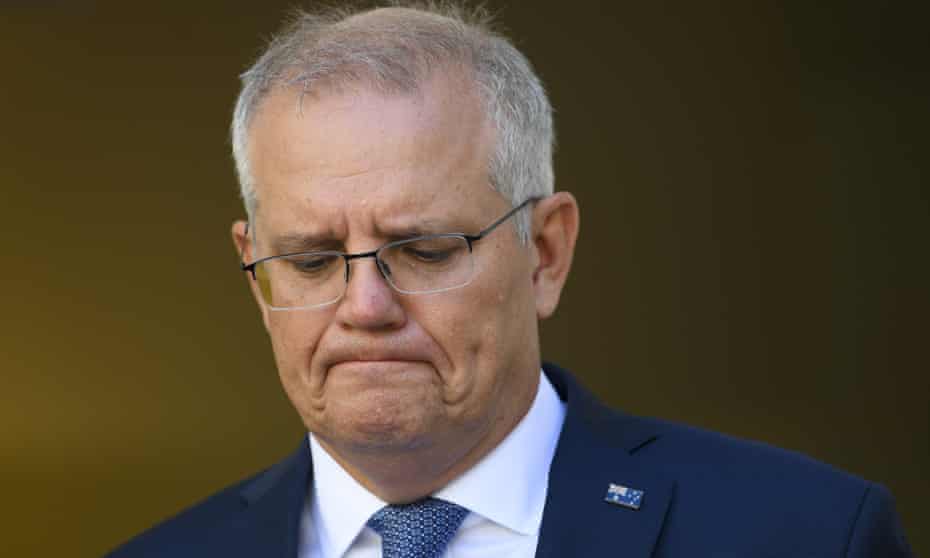Extract from The Guardian
If he doesn’t provide support soon the economy will spiral, but if he does he must admit the cost of living with the virus.

Despite Morrison’s talk of the need to lift oppressive regulations, it is government regulation and spending that saw us through these past two years.
If he announced now that we could all have free test kits by February or March he’d be laughed out of office, so instead he is positioning himself as a fiscal conservative standing up to populists demanding he spend more money. As if.
To criticise Morrison for putting the health of the budget ahead of the health of Australians is to flatter him unfairly. Since the Covid crisis began, the Morrison government, having appointed a former gas executive to steer its Covid-19 recovery taskforce, has spent far more public money subsidising the gas industry than it will ever spend on rapid antigen tests.
The idea that there is some trade-off between the health of Australians and the health of our economy is one of the foundations of Australian public debate, but it has no foundation in economics. As my colleague Jim Stanford surmised recently, you can’t have a healthy economy without a healthy workforce.
That simple truth is now crystal clear to the restaurateurs and retailers who were recently demanding Covid restrictions be lifted. Morrison should have told them the truth before Christmas. Instead, he offered them false hope.
Despite the months of blather from Morrison about the need to unshackle Australians from the yoke of (his) government’s oppressive regulations, the fact is it was government regulation and spending that got the country through the first two years of this crisis.
Border controls, movement restrictions, mask mandates, QR codes and free vaccination delivered Australia one of the lowest death rates and unemployment rates in the world. Well-designed government intervention works.
Josh Frydenberg knows that. As he released an economic update in December, the treasurer declared: “Having performed more strongly than any major advanced economy throughout the pandemic, the Australian economy is poised for a strong expansion.”
I agree entirely, but that’s not the story Morrison wants to tell.
No matter how many taxes or regulations he cuts, the reality is economies don’t work without workers, customers or supply chains. No matter how upbeat the prime minister appears, the Delta and Omicron variants of Covid are circulating freely in our shopping malls, restaurants, warehouses and hospitals. It is making hundreds of thousands of Australians sick, and it’s making millions think twice about going out to spend.
Conservatives have spent decades claiming that enormously expensive tax cuts would “boost labour force participation” and in turn help grow the economy. But those same politicians don’t seem to care that Covid is knocking hundreds of thousands of people out of the workforce each week.
And that’s before we send millions of unvaccinated children back to school who, even if they “only get a mild case,” will need parents to stay home and look after them. Thanks to lasts year’s strollout and this year’s poor planning, millions of Australians still aren’t eligible for their booster shot and, for reasons that are yet to be explained, millions of kids won’t be vaccinated before school returns.
It’s true that Omicron presents new challenges and that Australians are tired of this pandemic. But, just as Churchill didn’t lose patience as the second world war dragged on, it’s Morrison’s job to stay focused and plan for what’s likely to happen, not what he’d prefer happens – and to communicate clearly with the public about the real challenges, and real choices, we face.
There is strong evidence that controlling Covid was good for our economy these past few years; there’s no evidence that letting it rip will be good for it.
Scott Morrison has asked Australians to take responsibility for their own actions from here on in. It’s likely that many of them wish he would do the same.
Richard Denniss is the chief economist at independent thinktank the Australia Institute. @RDNS_TAI
No comments:
Post a Comment